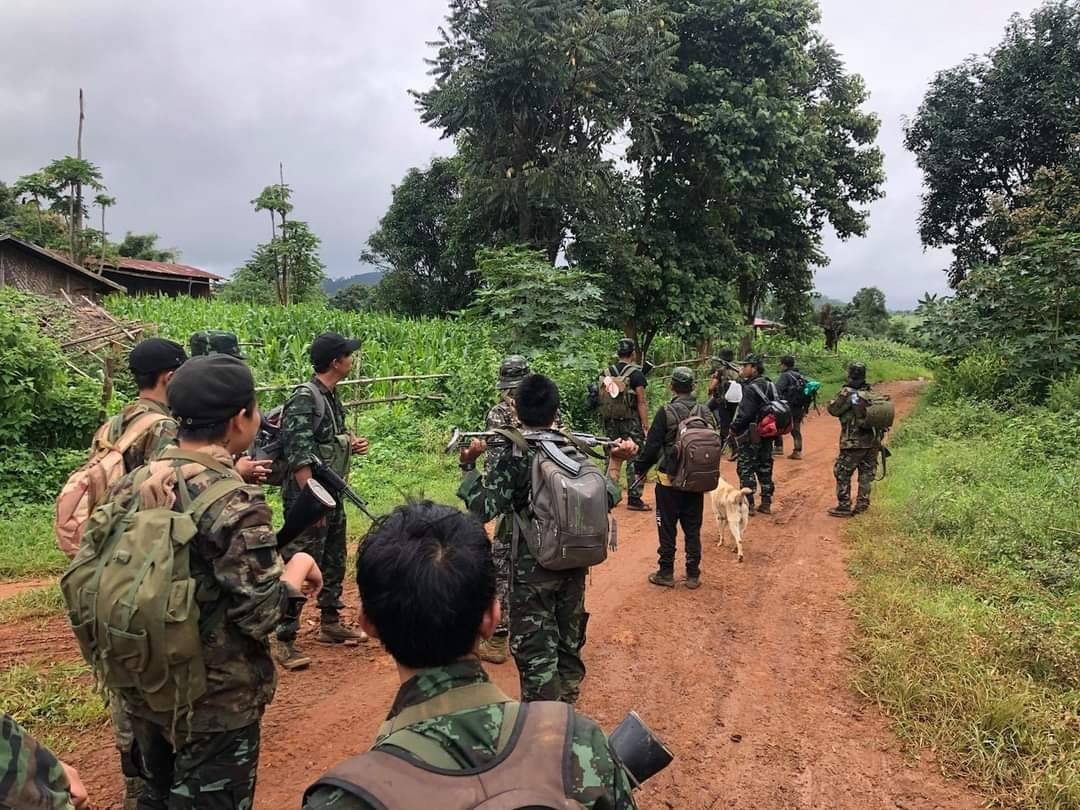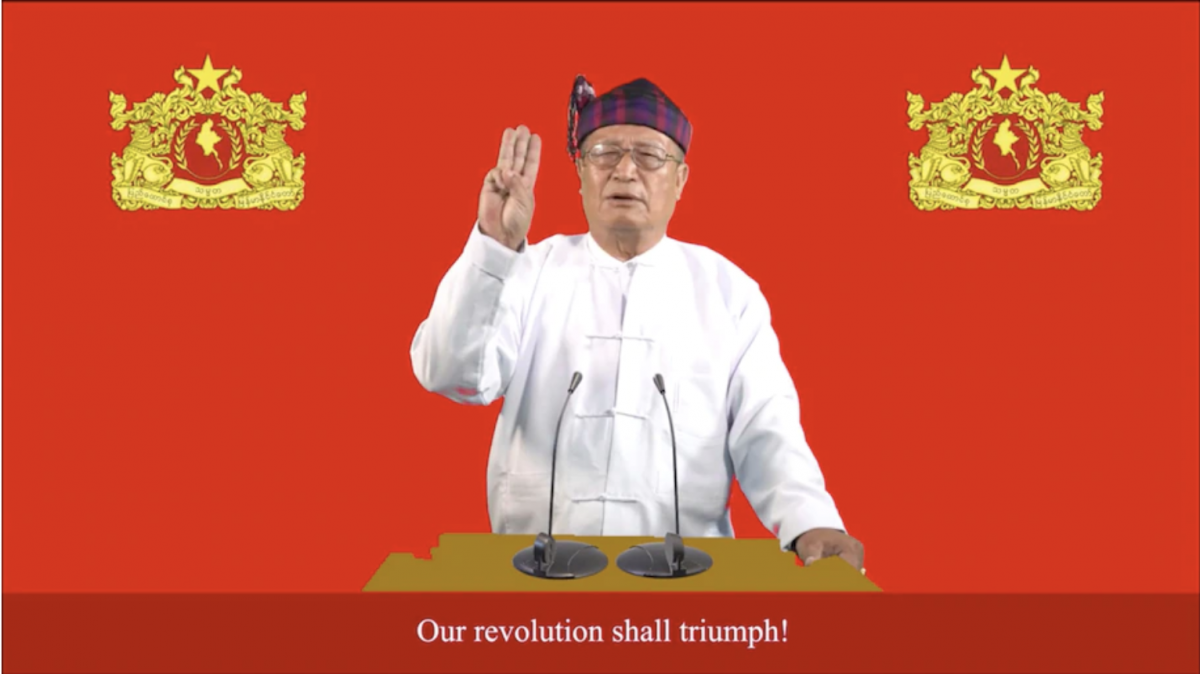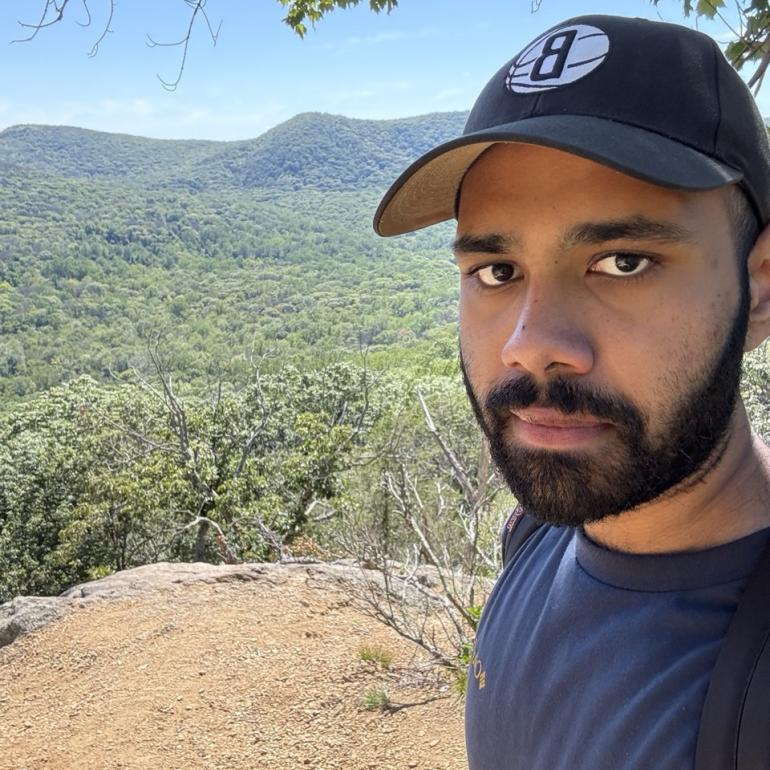
When exactly the Tatmadaw declared war on the people is up for debate. Some would say it was February 9 when a police officer shot 19-year-old protester Mya Thwe Thwe Khine in the head. Others would point to February 1 – the day the military used the threat of violence to overthrow elected politicians – or decades before that, when it began killing and raping ethnic minorities.
On the declaration of war, the shadow government has left no room for uncertainty. Acting president of the National Unity Government (NUG), Duwa Lashi La, called for revolt in “every corner of the country” against the regime in a speech posted this morning on Facebook – a long-awaited rallying cry for the NUG’s touted “D-Day” uprising.
Civil servants must quit immediately, said Duwa Lashi La, who also asked soldiers and police to join the “people’s defence forces” and ethnic armed groups to attack the junta and “fully control your lands”. People should help the resistance where they can and stock up on supplies as well as not travel unnecessarily, added the ethnic Kachin politician.
His last instruction was certainly acted upon, with the address sparking a spree of panic buying. But observers have questioned how much real-world effect the announcement will have, given that the NUG is not known to directly control any armed force or offer any substantial support to resistance fighters, according to several PDFs.
Expectations should be curbed, said a Yangon resident who asked for anonymity. “It’s just an official announcement for revolution,” he said. “I think people fail to read between the lines.”
But the words themselves seem to have encouraged a range of attacks on the junta, which has killed 1,051 people since the coup, according to activist group the Assistance Association for Political Prisoners (AAPP).
DVB English reported that Tatmadaw troops were deployed in at least two shopping malls in Yangon, where the heightening of security checks came amid a string of explosions in Dala, Mayangone and South Dagon townships. No causalities were reported, although a suspected military informer was stabbed to death in Hlaing township.
In Kayah State, a joint force of ethnic militia and PDFs attacked a police station in Demoso township, and the People’s Revolution Association, a group of young people from Magwe Region, announced its members attacked a local air base with rockets.
Meanwhile, the Kachin Independence Army clashed with junta troops in northern Sagaing Region and a Tatmadaw navy boat on the Ayeyarwady River reportedly shelled a PDF camp in the central Myanmar town of Myaung with no reported causalities. As the Tatmadaw moves to deploying heavy weaponry in central Myanmar, more PDFs alliances are being announced in the region.
In the south, security forces clashed with the Karen National Liberation Army (KNLA) in Tanintharyi Region’s Palaw Township while northern Shan State saw continued fighting between the Tatmadaw and the Myanmar National Democratic Alliance Army (MNDAA), which announced its support for the uprising.
Several blasts were reported around Mandalay Region – most notably at the bottom of Mandalay Hill where two security forces were reportedly killed. In Sagaing Region’s Budalin Township, bomb attacks were reported at 11 telecom towers owned by military-run Mytel.
All of that sounds like a lot and doesn’t even cover the full list of today’s incidents. But the Tatmadaw is better equipped and larger than its opponents – taking down the regime would require a spike in defections, say observers.
The NUG has played the D-Day card ahead of the UN General Assembly in New York on September 14, when the assembly’s Credentials Committee must consider which entity will occupy Myanmar’s UN seat: the junta or the NUG. The Myanmar public overwhelmingly recognises the NUG as the legitimate authority in the country.
Another Yangon resident added that it had been just a matter of time before the D-Day announcement.
“Things had been moving too slow for our liking and it seemed the Tatmadaw was legitimizing itself with every day it was in power,” he said. “It may start to get ugly but it's a necessary step if we want to see the end of despotism forever in Myanmar."


